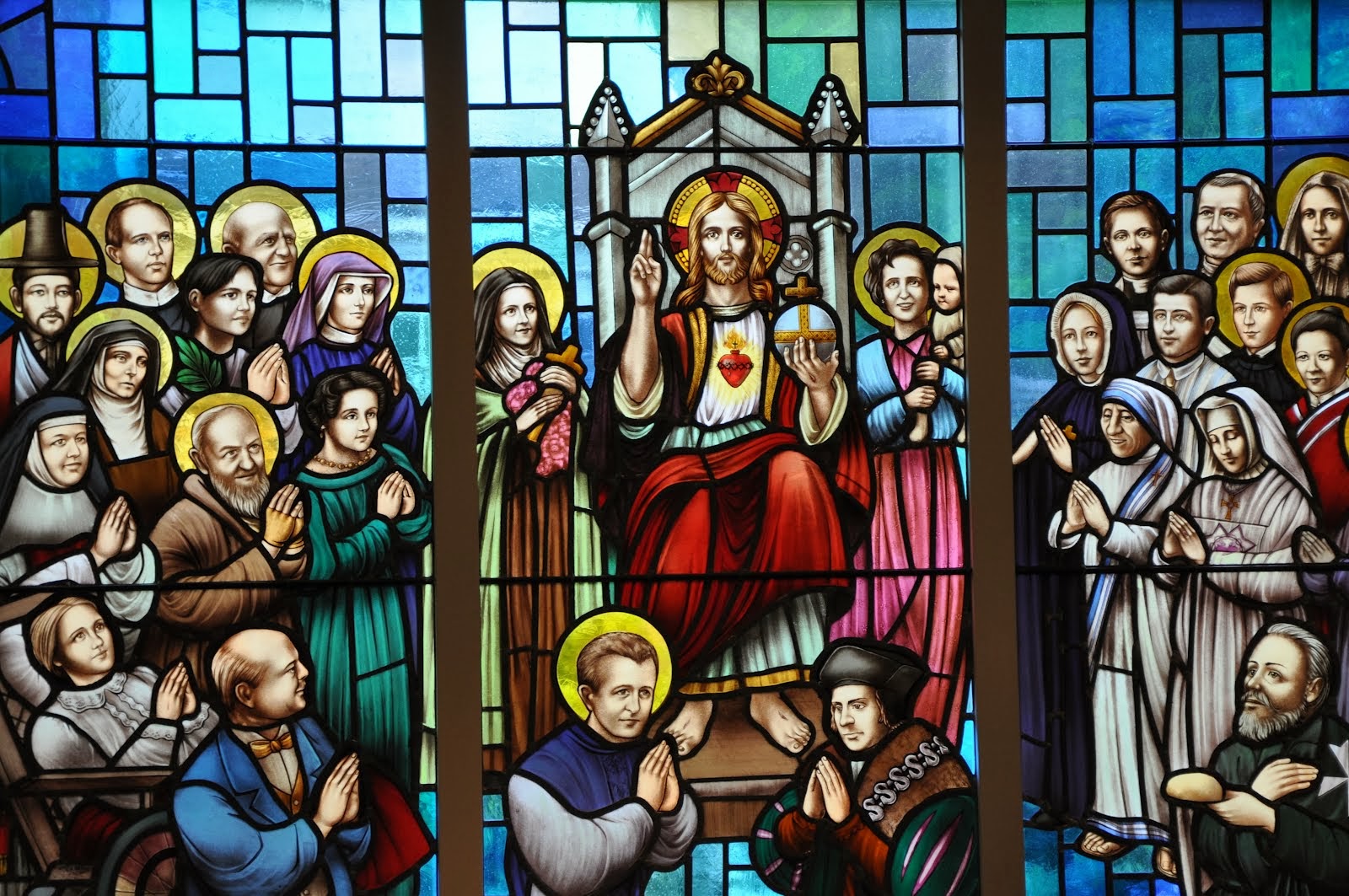
“I have been amazed that some are utterly in doubt as to whether or not the Holy Virgin is able to be called the Mother of God. For if our Lord Jesus Christ is God, how should the Holy Virgin who bore Him not be the Mother of God?” St. Cyril of Alexandria (4th-5th centuries, Doctor of the Church)
“But Mary, the glorious Mother of Christ, who is believed to be a virgin both before and after she bore Him, has, as we said above, been translated into paradise, amid the singing of angelic choirs, whither the Lord preceded her.” St. Gregory of Tours (6th century)
“Not without reason, therefore, is Mary represented as clothed with the sun, since she has penetrated the unfathomable abyss of divine wisdom to a degree that is almost incredible.” St. Bernard of Clairvaux (11th-12th centuries, Doctor of the Church)
“…the Blessed Virgin’s death was gentler than you can ever imagine. Her son allured her by the fragrance of His perfumes (Song 1:3), and she slipped away after them, longing to be gathered in His embrace…Love, at the foot of the cross, brought that immaculate bride to the supreme sorrows of death. It was only fitting, therefore, that death should afford her, at the last, the paramount delights of love.” St. Francis de Sales (16th-17th centuries, Doctor of the Church)
“Emerge from the filth of this world’s horrible torrent, of the torrent of thorns that is whirling you into the abyss of perdition! Emerge and enter the sweet waters of the river of peace…Do you fear to slight the incomparable goodness of the Heart of Jesus, your God and Redeemer, if you invoke the charity of His Mother’s Heart? Do you not know that Mary is nothing, possesses nothing, and can do nothing except in, through and by Jesus? Do you not know that Jesus is everything and that He can and does accomplish everything through her? Do you not know Jesus made Mary’s Heart as it is, and that He willed it to be the fountain of light, of consolation, and of every possible grace for those who will have recourse to it in their necessities? Do you forget that not only does Jesus reside and dwell perpetually in Mary’s Heart, but that He is in truth the heart of her Heart and the soul of her soul; and that therefore coming to the Heart of Mary means to honor Jesus and to invoke her Heart is to invoke Jesus?” St. John Eudes (17th century)
“The most Holy Virgin places herself between her Son and us. The greater sinners we are, the more tenderness and compassion does she feel for us. The child that has cost its mother the most tears is the dearest to her heart. Does not a mother always run to the help of the weakest and the most exposed to danger? Is not a physician in the hospital most attentive to those who are most seriously ill? The Heart of Mary is so tender towards us.” St. John Vianney (18th-19th centuries)
“The course of ages was to be reversed; the tradition of evil was to be broken; a gate of light was to be opened amid the darkness, for the coming of the just; – a Virgin conceived and bore Him. It was fitting, for His honor and glory, that she, who was the instrument of His bodily presence, should first be a miracle of His grace; it was fitting that she should triumph, where Eve had failed, and should ‘bruise the serpent’s head’ by the spotlessness of her sanctity…” St. John Henry Newman (19th century)
“It is Mary’s prerogative to be the Morning Star, which heralds in the sun. She does not shine for herself, or from herself, but she is the reflection of her and our Redeemer, and she glorifies Him.” St. John Henry Newman
“Whoever finds Mary finds Jesus Christ.” Bl. James Alberione (19th-20th centuries)
“Mary is the first effect of redemption, in the sense that it was applied to her at the moment of her conception and to us in another and diminished fashion only after our birth. She had this privilege, not for her sake, but for His sake.” Ven. Fulton Sheen (19th-20th centuries)
“Her love of God bore her upward; His love of His Mother lifted her upward. Our Lord could not forget the cradle in which He lay.” Ven. Fulton Sheen (20th century)
“Mothers don’t record their children’s tokens of affection. Neither weigh nor meticulously measure them. A tiny gesture of affection is as sweet as honey to them, and they give themselves generously in return, bestowing much more than they receive. If good mothers react in this way, just imagine what we can expect from our Holy Mother Mary.” St. Josemaria Escriva (20th century)
“I love our Lord with all my heart. But He wants me to love our Lady in a special way and to go to Him with my hand in Mary’s.” Ven. Maria Teresa Quevedo (20th century)
